Researching the best affordable public policy studies degree programs will help engaged citizens learn how laws, regulations, and ethics rules are made. Cost-effective public policy programs keep tuition low so students of all socioeconomic groups can better understand government functions. Public policy bachelor’s majors can focus on advocating for legislation that improves people’s lives. Public policy courses examine key urgent issues affecting society such as:
- climate change
- health care
- education
- crime
- trade
- immigration
- taxation
Whether Democratic, Republican, or independent, public policy workers strive to advance democracy and represent the will of America’s over 200 million registered voters. In November 2018, NPR reported that the number of midterm ballots cast hit a 50-year record high. The Pew Research Center found that only 17 percent of U.S. citizens trust the federal government to do what’s right though. Getting a top-value public policy studies degree can prepare bipartisan community leaders for fixing political gridlock and passing bills that benefit our well-being.
Our Methodology
First, Affordable Schools sought to find the most economical public policy studies degree options that prepare for government jobs without breaking the bank. We conducted an advanced search on the National Center for Education Statistics’ College Navigator database for public policy bachelor’s majors. We organized an initial pool of 25 U.S. institutions. We narrowed these results based on the average undergraduate cost of attendance in 2018-19. Our team recorded the in-state and out-of-state tuition for students enrolled in one year of study. Though both figures were noted, we only included the in-state tuition as a ranking factor. Priority was given for prices of $7,500 and less. The following five-point rubric was applied to grade affordable colleges for public policy studies degree completion.
Points:
Under $7,500: 5 Points
$7,500 to $15,000: 3 Points
$15,001 and Up: 1 Point
Second, the AS Staff recorded each public policy school’s student-faculty ratio from the same College Navigator tool. The student-faculty ratio is a good ranking factor because it exhibits how interactive undergraduate courses are. The proportion tells how many learners there are for every one professor. Lower student-faculty ratios mean class sizes will be intimate enough for active discussions and policy debates. Small public policy cohorts generally have more hands-on opportunities, including:
- research projects
- internships
- overseas trips
We gave preference to affordable public policy degree programs that had student-faculty ratios of 10:1 or less. Our analysts assessed each bachelor’s institution with one to three points based on the following scale of student engagement.
Points:
10:1 or Less: 3 Points
11:1 to 15:1: 2 Points
Greater Than 15:1: 1 Point
Third, Affordable Schools looked at each public policy program’s graduation rate. The College Navigator defines graduation rates as the percentage of undergrads finishing their degree within 150 percent of the “normal time.” This number showcases how many freshmen stay at the school and complete their bachelor’s within six years. Graduation rates help determine the quality of each accredited college’s:
- academics
- faculty
- student life
- support services
High graduation rates suggest high student satisfaction with the public policy curriculum. Our researchers prioritized universities with graduation rates above 50 percent in the three-point rubric below. Our last step was adding up the totals and arranging the best-value public policy studies degree programs from least to most points.
Points:
Less than 30 Percent: 1 Point
Between 30 and 50 Percent: 2 Points
More than 50 Percent: 3 Points
Ranking the 15 Best Affordable Public Policy Studies Degree Programs
15. Georgia Institute of Technology
Atlanta, GA
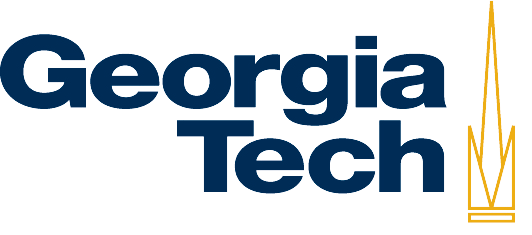
Total Points: 7
Program Website
Georgia Institute of Technology is a public, space-grant SURA member. It enrolls 32,722 students from 114 countries. In 2016, GT won the Omicron Delta Kappa National Leader of the Year Award. Georgia Tech earned the 2017 CMD-IT University Award for Retention of Minorities and Students with Disabilities. The U.S. News & World Report ranked GT 20th for public policy. GT was named:
- America’s 17th best value on WalletHub
- 49th hardest college on Niche
- 47th top research institution in Forbes
The Ivan Allen College of Liberal Arts offers an economical Public Policy (BS) for translating ideas into strategic solutions that enhance society. This 122-credit, SACS-accredited major ends with the Policy Task Force project after courses like Macroeconomics and Urban Development. Students can also:
- intern with the Georgia General Assembly
- earn the Intellectual Property Certificate
- conduct Energy Policy Lab research
- compete on the Mock Trial Team
- participate in the Washington DC Semester.
Degree Options:
Bachelor of Science in Public Policy
In-State Tuition: $12,424
Out-of-State Tuition: $33,020
Student-Faculty Ratio: 22:1
Graduation Rate: 87 percent
14. Ohio State University
Columbus, OH
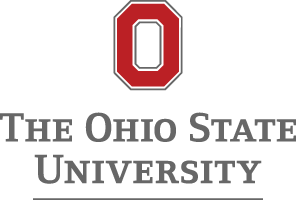
Total Points: 7
Program Website
Ohio State University is a public, land-grant ORAU member. It offers more than 12,000 courses across 18 colleges. It enrolls 61,170 students from 110 countries. In 2018, Ohio State won the CASE Pride of District V Excellence Award. OSU also won the 2019 OSBA Eugene Weir Award for Ethics and Professionalism Award. The U.S. News & World Report ranked OSU 25th for public policy analysis programs. OSU was named:
- America’s 22nd best big college on Niche
- 94th top university by The Wall Street Journal
- 97th best value in Forbes.
The John Glenn College of Public Affairs offers a low-cost Public Policy Analysis BS. The 120-credit, HLC-accredited plan offers three specializations:
- Education Policy
- Science and Technology Policy
- Health Policy
Majors might also:
- engage in the Center for Responsive Politics
- intern in the Ohio House of Representatives
- become WAIP Fellows
- join the Civic Leadership Council
- add the Global Option
- attend Ready to Run workshops.
Degree Options:
Bachelor of Science in Public Policy Analysis
In-State Tuition: $10,726
Out-of-State Tuition: $30,742
Student-Faculty Ratio: 19:1
Graduation Rate: 84 percent
13. Albany State University
Albany, NY
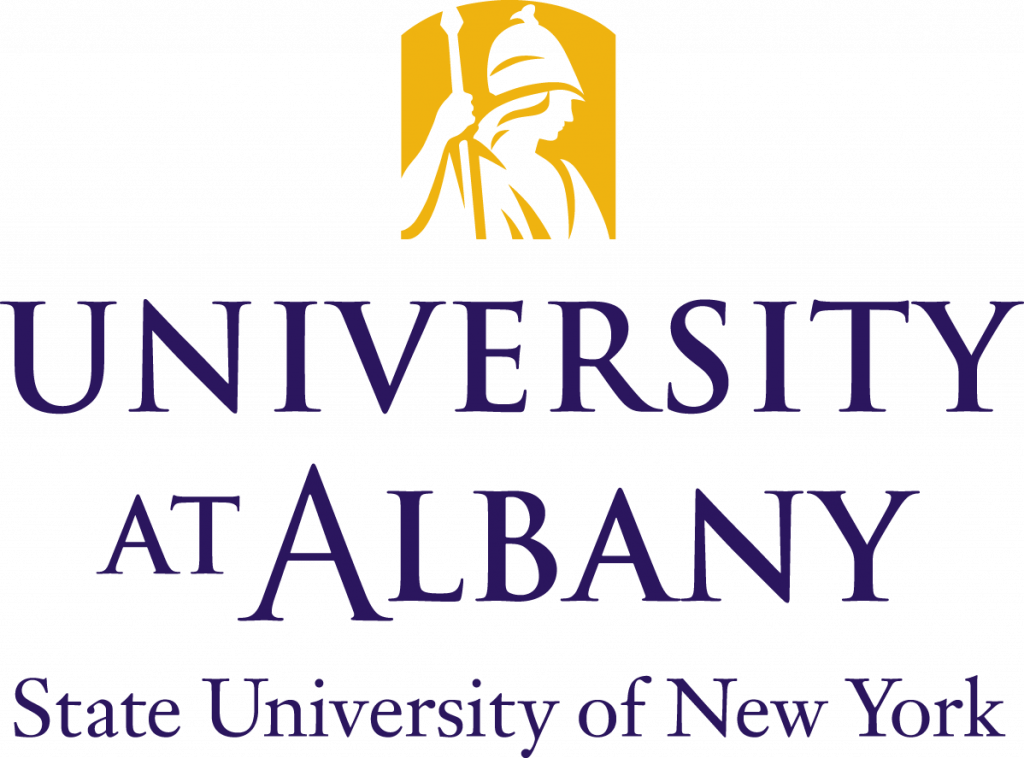
Total Points: 7
Program Website
The University at Albany SUNY is a public, land-grant AASCU member founded in 1844. It enrolls 13,590 undergraduates from 89 countries. It offers 150 low-cost degrees and has an 84 percent retention rate. In 2013, SUNY Albany received the College Democrats of America’s Chapter of the Year Award. It also won a 2019 SUNY Council for University Advancement Excellence Award. The U.S. News & World Report ranked the University at Albany 34th for public policy analysis. Albany was named:
- America’s 106th top value in Money
- 123rd most diverse college on Niche
- 54th best choice by Business First
The Rockefeller College of Public Affairs offers an affordable BA in Public Policy and Management. It’s focused on addressing urgent global citizenship issues. The 120-credit, MSCHE-accredited path has a March 1st deadline for freshmen starting courses like Security Intelligence and Public Finance. Undergrads may also:
- intern with the Census Bureau
- pursue the Dual BA/MPA
- exchange to Bocconi University
- conduct research at the Institute of Government
- join Pi Alpha Alpha,
- apply for the Anne Gustin Scholarship.
Degree Options:
Bachelor of Arts in Public Policy and Management
In-State Tuition: $10,011
Out-of-State Tuition: $26,851
Student-Faculty Ratio: 19:1
Graduation Rate: 64 percent
12. Georgia State University
Atlanta, GA
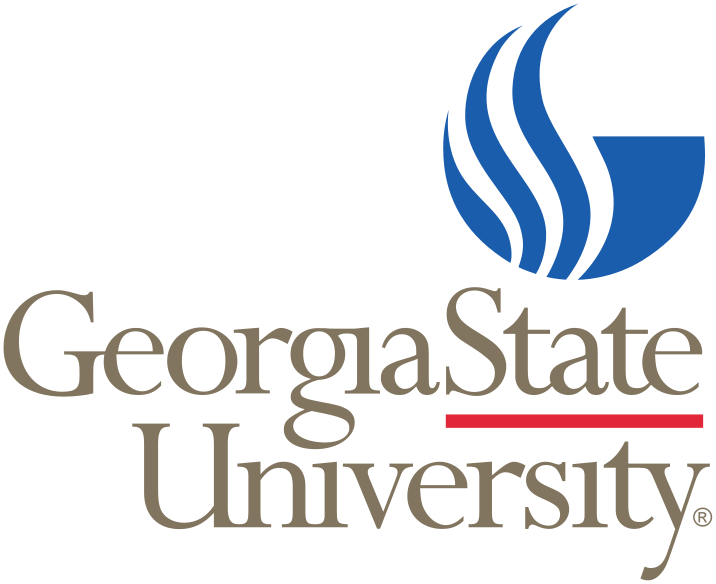
Total Points: 7
Program Website
Georgia State University is a public, land-grant RU/VH research institution. It enrolls 52,814 students from 170 countries. In 2014, Georgia State was a finalist for the ASPA Charles H. Levine Memorial Award for Public Administration. GSU was featured in the Journal of Public Affairs Education’ stop 10. The U.S. News & World Report ranked Georgia State 22nd for public policy. GSU was named:
- America’s 171st top value by WalletHub
- 98th best big college on Niche
- 199th best public school in Forbes
It partners with DFCS for the Child & Family Policy Lab.
The Andrew Young School of Policy Studies admits freshmen with a median 3.43 GPA into the inexpensive Public Policy B.S. for analysis of proposed law changes. The 120-credit, SACS-accredited program has three concentrations:
- nonprofit leadership
- public management & governance
- planning and economic development.
Degree Options:
Bachelor of Science in Public Policy
In-State Tuition: $9,112
Out-of-State Tuition: $23,971
Student-Faculty Ratio: 23:1
Graduation Rate: 54 percent
11. University of Mississippi
Oxford, MS
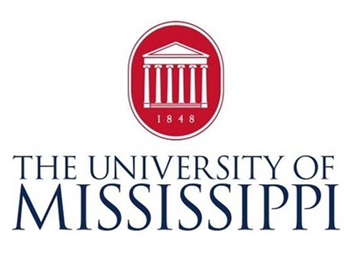
Total Points: 7
Program Website
The University of Mississippi is a public, sea-grant ORAU member founded in 1848. It enrolls 23,258 students from 70 countries. In 2019, UM won the Public Relations Association of Mississippi Excellence Award. It also won the 2017 Kappa Kappa Gamma Respect and Dignity for All Award. The U.S. News & World Report ranked Mississippi 89th for public affairs programs. UM was named:
- America’s 41st best student life college on Niche
- 390th best university by Times Higher Education
- 354th top value on WalletHub.
The College of Liberal Arts offers a low-cost B.A. in Public Policy Leadership. It helps train responsible decision-makers for legislative roles. The 120-credit, SACS-accredited major requires application by January 5th for courses like Political Parties and Disaster Policy. Students can also:
- intern with the Sunflower County Freedom Project
- summer at North China University
- conduct research at the McLean Institute
- volunteer with the Southern Foodways Alliance
- join Toastmasters International.
Degree Options:
Bachelor of Arts in Public Policy Leadership
In-State Tuition: $8,660
Out-of-State Tuition: $24,614
Student-Faculty Ratio: 18:1
Graduation Rate: 64 percent
10. SUNY Cortland
Cortland, NY

Total Points: 7
Program Website
SUNY Cortland is a public, coed Southern Tier branch that enrolls 6,858 students across 27 departments. In Spring 2019, SUNY Cortland was awarded a Learning By Giving Foundation Grant. It won a 2019 Silver NACUFS Loyal E. Horton Dining Award. The U.S. News & World Report ranked SUNY Cortland 68th in the Northern Region. Cortland was named:
- America’s 54th best public value in Kiplinger’s
- 172nd best Greek life college on Niche
- 248th top university by Washington Monthly.
At Old Main, the Political Science Department offers and affordable Public Administration and Public Policy (B.A.) major. It helps prepare students to develop effective proposals for solving societal challenges. The inexpensive, 124-credit, MSCHE-accredited sequence spans eight semesters. It includes courses from Constitutional Reform to Discrimination Law. Undergrads might also:
- intern with the New York State Assembly
- compete with Moot Court
- attend Law School Day
- take the Belize Development trip
- join Pi Sigma Alpha
- utilize the Excelsior Scholarship.
Degree Options:
Bachelor of Arts in Public Administration and Public Policy
In-State Tuition: $8,536
Out-of-State Tuition: $18,316
Student-Faculty Ratio: 16:1
Graduation Rate: 71 percent
9. Central Washington University
Ellensburg, WA

Total Points: 7
Program Website
Central Washington University is a public, Hispanic-serving GNAC member that enrolls 10,964 undergraduates from 75 countries. In 2018, CWU earned its fourth Insight Into Diversity Higher Education Excellence Award. It also won the prestigious 2015 James Shea Award recipient. The U.S. News & World Report ranked Central Washington 48th on the West Coast. CWU was named:
- America’s 183rd top public school in Forbes
- 124th best value by The Economist,
- 466th best collegiate campus on Niche
The College of the Sciences revamped its Public Policy B.S. in 2018 to better reflect contemporary issues affecting 21st-century citizens. The low-cost, 180-unit, NWCCU-accredited path requires declaring a second major like Political Science, Geography, or Environmental Studies. Other opportunities include:
- interning with the American Civil Liberties Union
- joining Public Policy Club
- entering the William O. Douglas Honors Program
- becoming Euro Scholars
- continuing studies for the Law & Justice M.S.
Degree Options:
Bachelor of Science in Public Policy
In-State Tuition: $8,072
Out-of-State Tuition: $23,053
Student-Faculty Ratio: 19:1
Graduation Rate: 55 percent
8. Rutgers University
New Brunswick, NJ
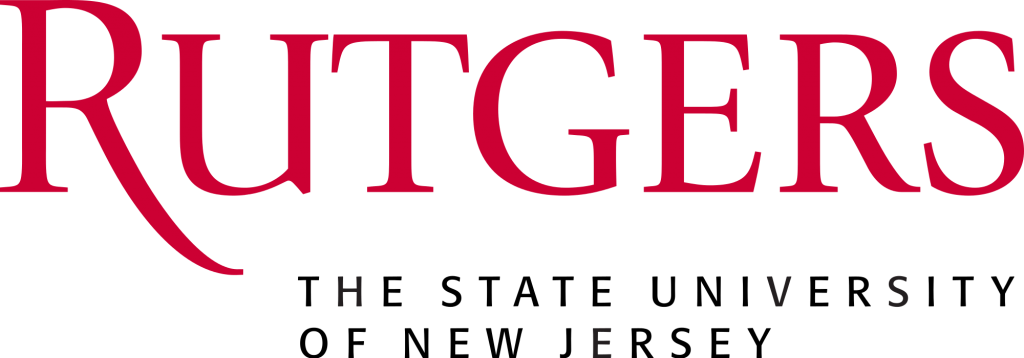
Total Points: 8
Program Website
Rutgers University is a public, sea-grant AAU member. It was founded before the Revolutionary War in 1766. It enrolls 70,876 students from 125 countries in 500 economical degree programs. In 2013, Rutgers received the AAPOR National Policy Impact Award. It won the 2018 APSA John Gaus Lifetime Achievement Award. The U.S. News & World Report ranked Rutgers 33rd for public affairs degrees. Rutgers was named:
- America’s 16th most diverse college on Niche
- 54th top value in Forbes
- 147th best university by Times Higher Education.
The Edward J. Bloustein School of Planning & Public Policy prepares New Brunswick B.S. majors to combat inequalities firsthand. The low-cost, 120-credit, MSCHE-accredited option integrates classes from Expository Writing to Government Relations. Students may also:
- join the Public Service Association
- become Ralph W. Voorhees Fellows
- summer in Salamanca
- intern at the Labor Department
- aid the Green Building Initiative.
Degree Options:
Bachelor of Science in Planning and Public Policy
In-State Tuition: $14,974
Out-of-State Tuition: $31,282
Student-Faculty Ratio: 15:1
Graduation Rate: 80 percent
7. University of Delaware
Newark, DE
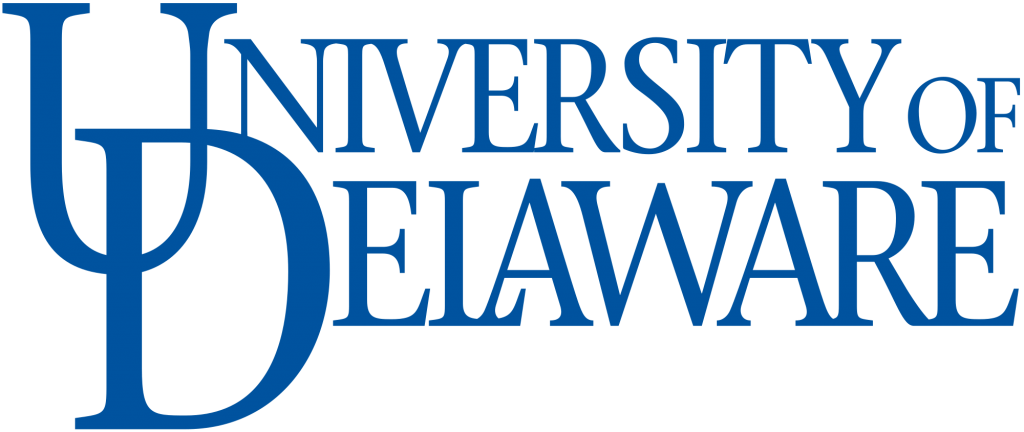
Total Points: 8
Program Website
The University of Delaware is a public, sea-grant RU/VH institution founded in 1833. It enrolls 24,120 students from 98 countries in 135 low-cost degree programs. In 2017, UD won the John H. Taylor Education Policy Leadership Award. It received the 2018 ACHA Outstanding Community Service Award. The U.S. News & World Report ranked Delaware 39th for public affairs programs. UD was named:
- America’s 68th best value in Money
- 94th best Common Application school on Niche
- 145th top university by The Wall Street Journal.
The Joseph R. Biden Jr. School of Public Administration offers a low-cost B.A. in Public Policy where undergrads formulate logical community improvements. The 124-credit, MSCHE-accredited major has three concentrations:
- Policy Analysis
- Urban Policy & Planning
- Public & Nonprofit Administration
Students may also:
- Participate in Disaster Research Center projects
- pursue the 4+1 MPA
- join the BuildOn Chapter
- venture to South Africa
- publish in Connect.
Degree Options:
Bachelor of Arts in Public Policy
In-State Tuition: $13,680
Out-of-State Tuition: $34,310
Student-Faculty Ratio: 15:1
Graduation Rate: 81 percent
6. Virginia Polytechnic Institute and State University
Blacksburg, VA

Total Points: 8
Program Website
Virginia Polytechnic Institute and State University is a public, land-grant URA member. It enrolls 26,623 undergraduates from 105 countries. In 2019, VT earned the Institute of International Education’s Seal of Excellence. Virginia Tech also won the 2018 NAFSA Senator Paul Simon Spotlight Award. The U.S. News & World Report ranked Virginia Polytechnic Institute and State University 39th for public affairs degrees. VT was named:
- America’s 106th top institution by The Wall Street Journal
- 29th best value in Money
- 52nd best faculty on Niche.
The College of Liberal Arts & Human Sciences offers a low-cost B.A. in International Public Policy. It prepares students in governance strategies on a global scale. The affordable, 120-credit, SACS-accredited program has an 84 percent graduation rate. Courses range Political Economy to Grassroots Development. Students can also:
- intern with NATO
- pledge Phi Alpha Delta
- join the Model Arab League
- travel from Spain to Singapore
- add the Security Studies Certificate
- access the Diplomacy Lab.
Degree Options:
Bachelor of Arts in International Public Policy
In-State Tuition: $13,620
Out-of-State Tuition: $31,908
Student-Faculty Ratio: 14:1
Graduation Rate: 84 percent
5. Arizona State University
Phoenix, AZ

Total Points: 8
Program Website
Arizona State University is a metropolitan, land-grant URA member. It enrolls 83,544 undergraduates from 136 nations. In 2019, ASU received the Shirley Agnos Legacy Award from the Arizona Town Hall. It won the 2018 OLC Digital Learning Innovation Award for EdPlus courses. The U.S. News & World Report ranked Arizona State University 20th for public policy. ASU was also named:
- America’s 273rd best education outcomes by WalletHub
- 67th best value in Forbes
- 92nd most diversity on Niche
It hosts the Morrison Institute for Public Policy’s State of Our State Conference each December.
The Watts College of Public Service & Community Solutions delivers its Public Service and Public Policy B.S. online on Canvas or in Downtown Phoenix. The affordable 120-credit, HLC-accredited major specializes in 7.5-week courses in 14 focus areas. These include areas like American Indian Studies and Emergency Management. Undergrads can also:
- engage in the Latino Public Policy Center
- attend the Legislative Academy
- enter the Dean’s Cup Challenge
- join the ICMA Chapter
- tour Israel
- intern at Intel Corporation.
Degree Options:
Bachelor of Science in Public Service and Public Policy
In-State Tuition: $10,822
Out-of-State Tuition: $28,336
Student-Faculty Ratio: 15:1
Graduation Rate: 69 percent
4. University of North Carolina
Chapel Hill, NC

Total Points: 8
Program Website
The University of North Carolina-Chapel Hill is a historic public, land-grant AAU constituent founded in 1795. It’s affiliated with nine Nobel Prize laureates and enrolls 29,847 students from 74 countries. In 2019, UNC received the Carolina Chamber of Commerce’s Large Business of the Year Award. UNC-Chapel Hill also was a finalist in the 2017 Cooke Prize for Equity in Educational Excellence. The U.S. News & World Report ranked UNC-Chapel Hill 28th for public policy. UNC was named:
- America’s 16th best value in The Princeton Review
- 55th best faculty on Niche
- 46th most selective school by WalletHub.
The College of Arts & Sciences an affordable B.A. in Public Policy to develop substantive knowledge of domestic and global issues. This inexpensive, 120-credit, SACS-accredited pathway accepts an average 1347 SAT score. Courses range from Economic Justice to Quantitative Analysis. Students might also:
- become Bryan Fellows
- intern on Capitol Hill
- attend the Thomas Willis Lambeth Lecture
- conduct research in the Environmental Policy Center
- join the American Constitution Society.
Degree Options:
Bachelor of Arts in Public Policy
In-State Tuition: $8,987
Out-of-State Tuition: $35,170
Student-Faculty Ratio: 15:1
Graduation Rate: 89 percent
3. SUNY Empire State College
Saratoga Springs, NY
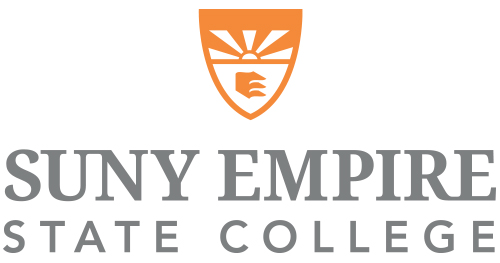
Total Points: 8
Program Website
SUNY Empire State College is a senior public, adult-oriented COPLAC member. Created in 1971, it enrolls 10,424 nontraditional students online and at 34 New York centers. In 2018, Empire State won six SUNY Chancellor’s Awards for Excellence. Empire State also won a 2016 OLC Award for Excellence in Online Teaching and Learning. Washington Monthly ranked SUNY Empire State College 578th among master’s-level institutions. It was named:
- America’s 109th safest campus on Niche
- 11th most popular public policy school by College Factual.
On Moodle, the Department of Social Science & Public Affairs offers 24/7 access to its affordable B.A./B.S. in Public Affairs. The 124-credit, MSCHE-accredited plan outlined in Fall 2014 allows eight custom concentrations like:
- public policy
- health policy
- criminal justice policy
Students can also:
- access the Online Library
- join Multicultural Club
- transfer from the A.S. in Sociology
- intern at Saratoga Hospital
- participate in the Pay It Forward Initiative
- study in Thessaloniki, Greece.
Degree Options:
Bachelor of Arts in Public Affairs
Bachelor of Science in Public Affairs
In-State Tuition: $7,405
Out-of-State Tuition: $17,185
Student-Faculty Ratio: 15:1
Graduation Rate: 26 percent
2. St. Mary’s College of Maryland
St. Mary’s City, MD

Total Points: 9
Program Website
St. Mary’s College of Maryland is a public, four-year waterfront COPLAC member founded in 1840. It enrolls 1,549 students across 24 economical disciplines. In 2016, St. Mary’s won the IACLEA Award for Law Enforcement Valor. It earned a 2018 Omicron Delta Kappa Presidential Circle of Excellence Award. The U.S. News & World Report ranked St. Mary’s College 95th for liberal arts programs. It was named:
- America’s 189th top value in Forbes
- 122nd best small college on Niche
- fifth greenest school by The Princeton Review. Boasting 55 Senator J. William Fulbright Scholars in the last 34 years,
It has had 55 Senator J. William Fulbright Scholars in the last 34 years.
The Political Science Department offers a low-cost B.A. in Public Policy for future legislators to learn government structures. The inexpensive, 120-credit, MSCHE-accredited curriculum builds on the Social Science Core in two tracks: American public policy or international public policy. Other opportunities include:
- interning with Senator Chris Van Hollen
- taking the India Study Tour
- researching in the Center for Democracy
- applying for the Hampton Davey Award
- attending the State Delegate Forum.
Degree Options:
Bachelor of Arts in Public Policy
In-State Tuition: $14,806
Out-of-State Tuition: $30,568
Student-Faculty Ratio: 10:1
Graduation Rate: 80 percent
1. University of Science and Arts of Oklahoma
Chickasha, OK
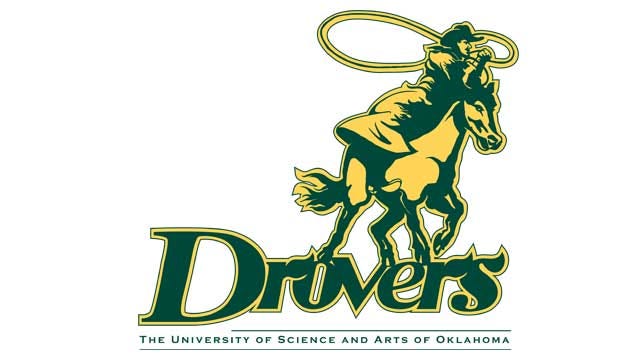
Total Points: 9
Program Website
The University of Science and Arts of Oklahoma is a public, coed baccalaureate COPLAC member opened in 1908. that’s endowed for It enrolls 904 students in 22 low-cost majors at its Grady County campus. In 2015, USAO was given the Governor’s Arts in Education Award. USAO shared a 2019 Regents Business Partnership Excellence Award with the University of Oklahoma. High school counselors ranked the University of Science and Arts 162nd for the U.S. News & World Report. USAO was named:
- America’s 143rd best liberal arts college on Niche
- 52nd top value in Kiplinger’s
Each 10-week trimester, the Arts & Humanities Division starts the affordable B.A. in Public Policy. Students can graduates within as few as three years. The 124-credit, HLC-accredited sequence requires an Exit Exam after Davis Hall courses like Federal Indian Law and World Civilization. Students may also:
- intern with the Oklahoma State Chamber
- run for the Student Government Association
- join Circle K
- pledge Sigma Psi Omega
- minor in Economics
- visit the United Kingdom.
Degree Options:
Bachelor of Arts in Public Policy
In-State Tuition: $7,200
Out-of-State Tuition: $17,550
Student-Faculty Ratio: 13:1
Graduation Rate: 46 percent
What Career Options are Available with a Low-Cost Public Policy Studies Degree?
Attending an affordable university for public policy studies is only the beginning of exciting advocacy work in diverse careers protecting public welfare. For example, policy analysts investigate the costs and benefits of proposed government legislation. City managers plan local laws and make everyday urban administrative operations run smoothly. Legislators are elected to sponsor and enact bills that make positive policy changes. Nonprofit directors allocate fundraising donations to lead successful community service initiatives. Environmental policy consultants advise government officials on ways to reduce our carbon footprint. Emergency management directors set local or regional policies that keep citizens safe during disasters. Other jobs with an affordable degree in public policy studies include:
- health policy manager
- government relations officer
- public relations specialist
- lobbyist
- political news reporter
- urban planner
- grant writer
- intelligence analyst
- campaign manager
- survey researcher.
How Much Money Can High-Value Public Policy Studies Degree Graduates Make?
Affordable colleges for public policy studies degree programs have the best ROI in a field where salary potential can be modest or lucrative. In May 2018, the Bureau of Labor Statistics reported that all federal, state, and local government jobs provided median pay of $58,360. Policy analysts can make anywhere from $31,740 to $145,000. Legislators reap an average yearly income of $47,620. Administrative services managers have a median wage of $96,180. Regional planners are compensated $73,050 on average. Top executives like mayors and county administrators earn a mean $104,980. Nonprofit managers bring home an average $65,320 salary. Environmental policy specialists get mean earnings of $71,130. Salary.com found that public policy directors report median income of $150,820. Other average yearly wages were $129,145 for government affairs managers, $111,793 for policy lobbyists, $91,215 for policy change directors, and $99,458 for education policy consultants.
Is the Market Currently Hiring After Cheap Public Policy Studies Degree Programs?
Graduating from the most affordable university for public policy studies degree programs can lead to gainful employment or master’s enrollment. In 2018, the Center for Responsive Politics stated that the lobbying market now spends over $3.4 billion. The Department of Labor predicts that public service careers will see faster-than-average growth of 14 percent. Demand for social scientists, including policy analysts, will jump 11 percent by 2026. Employment in public administration roles like city manager will increase by 8 percent. Nonprofit administrators will see an 18 percent uptick for 26,500 new openings. Hiring of emergency management directors will expand by 8 percent this decade. Management consultants can expect a 10-year increase of 14 percent. CNN Money recognized government affairs directors for the 21st best job with 7 percent job growth. Enrolling in affordable public policy studies degree programs will instill the passion and marketable skills employers want for impactful work.
AS Staff
This concludes our ranking of the top 15 best affordable public policy studies degree (bachelor’s).
Other Rankings of Interest:
25 Most Affordable Bachelor’s-Granting Historically Black Colleges/Universities
The 25 Largest Public Colleges with Online Bachelor’s Programs
25 Most Affordable Medium-Sized, Private, Nonprofit Bachelor’s Colleges
20 Best Affordable Online Colleges for Computer Science/IT (Bachelor’s)
35 Top Value Communication and PR Online Degree Programs (Bachelors)
15 Best Affordable Biology, Biochemistry, Zoology Degree Programs (Bachelor’s)
15 Best Affordable Economics Degree Programs (Bachelor’s)
15 Best Affordable Forensic Science Degree Programs (Bachelor’s)

 The Best Colleges
The Best Colleges The Lowest Costs
The Lowest Costs The Highest Returns
The Highest Returns